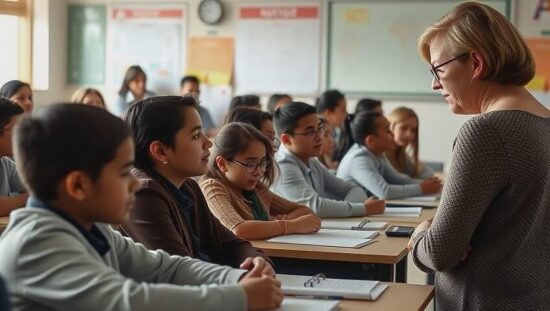A recent survey conducted by the Philologenverband NRW (North Rhine-Westphalia’s Association of Teachers of Humanities) reveals a complex and increasingly fraught relationship between educators and the burgeoning use of artificial intelligence within the German Gymnasium (grammar) school system. While teachers are demonstrating a growing openness to integrating AI tools into their pedagogy, significant concerns are emerging regarding the impact on student learning and assessment, raising critical questions about the effectiveness of current state guidance.
The survey, involving 1,509 teachers predominantly working in Gymnasium schools, indicates a shift in attitude toward AI adoption. Where a third of teachers expressed fundamental opposition to AI in the classroom in 2023, that number has now dropped to just 17%. A significant 63% now utilize AI applications either occasionally or regularly in their teaching. This burgeoning acceptance stems, in part, from a desire to explore the potential benefits of these technologies, with many teachers actively experimenting with AI tools.
However, the data paints a concerning picture of the unintended consequences. Teachers consistently report a demonstrable “strong decline in independent effort” among students regarding homework and project work. The survey highlights a “rapid decline in willingness to perform” coupled with the troubling observation that while high-achieving students may benefit, those already struggling academically are being further disadvantaged. The core issue, as consistently voiced by respondents, revolves around the difficulty in discerning genuine student effort from AI-generated content – a challenge described as “intransparent performance.
Sabine Mistler, head of the Philologenverband NRW, articulated the dilemma succinctly, stating that the influence of generative AI systems on student performance “must always be considered when we contemplate further applications”. She emphasized that while AI offers opportunities, it also presents considerable risks.
Beyond the pedagogical anxieties, logistical and procedural shortcomings are also evident. A significant 36% of teachers cite a lack of adequate technical infrastructure as a barrier to effective AI integration. Furthermore, 55% express concerns regarding data protection, a particularly sensitive issue within the German education system.
A particularly damning finding pertains to the state’s own guidance on AI usage, the “Handbook for Dealing with Text-Generating AI Systems”. A staggering 49% of surveyed teachers were unaware of its existence, while a further 31% deemed it either less or not at all helpful. This suggests a significant disconnect between state-level policy and on-the-ground realities, highlighting a potential failure to adequately prepare educators for the challenges posed by AI.
The pervasive sense of uncertainty and the escalating concerns about the impact on student learning are prompting a critical need for renewed focus on teacher training, infrastructural investment and a reassessment of state-level guidelines. The survey’s findings underscore the importance of navigating the integration of AI not only as a technological advancement, but as a complex pedagogical and ethical challenge demanding proactive and thoughtful intervention.





